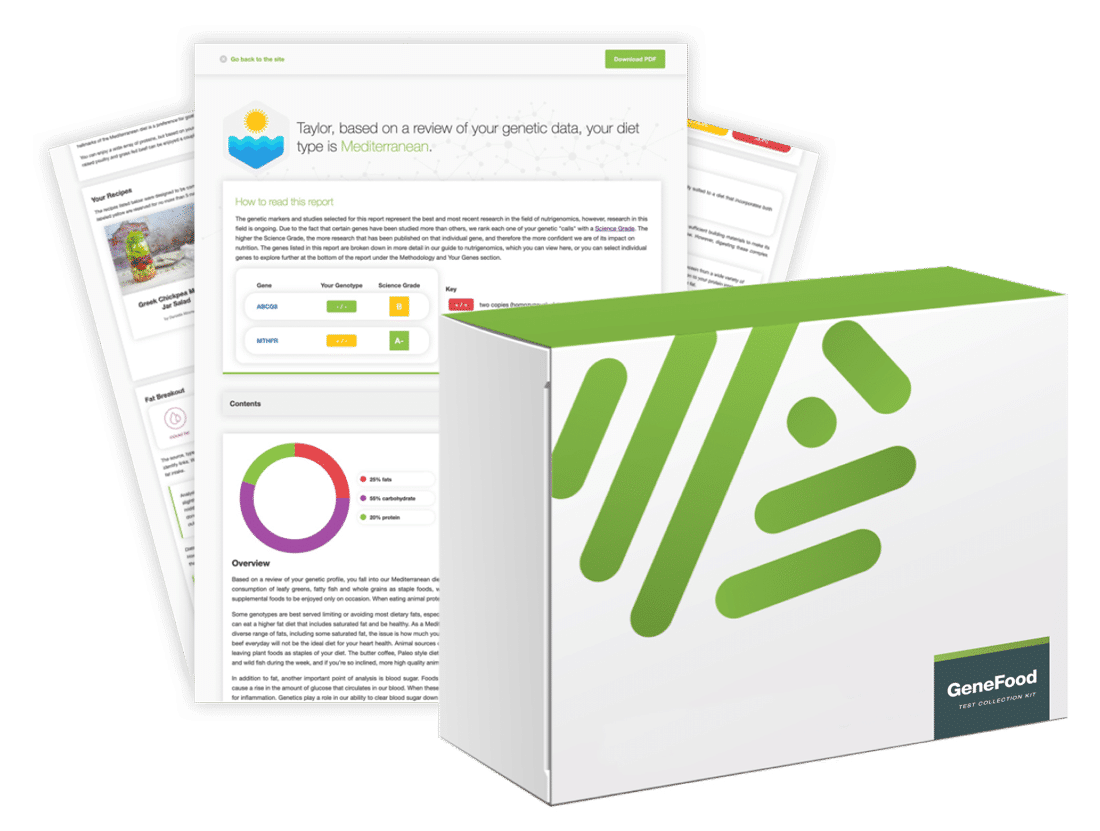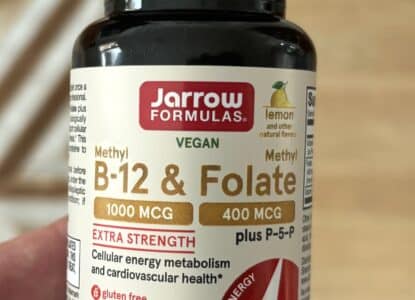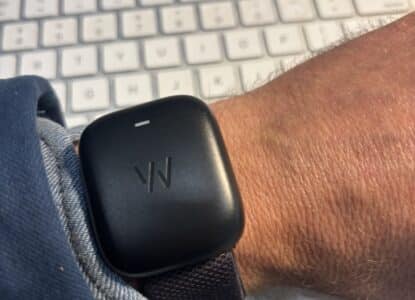Nebula Genomics Review: Which Products Are Best for 2025?
Article at a Glance
- Nebula Genomics was founded by George Church, who is a professor of genetics at Harvard Medical School.
- The company uses the blockchain to anonymize genetic data.
- Nebula’s main product is built on Whole Genome Sequencing (WGS), which means users have access to their entire genome.
- Users can also upload raw data for free. However, we found some errors/omissions in the raw data reports for alcohol and caffeine metabolism.

Contents
I decided to review Nebula Genomics because the company reviewed our product here at Gene Food on the company blog.
Nebula was founded by George Church who is a professor of genetics at Harvard Medical School. Professor Church has won several prestigious awards, including being named to the Time 100 in 2017.
Nebula is on the cutting edge of the genomics industry and is innovating not only with its drug research partnerships with “big pharma,” but with consumer protections as well.
Nebula’s blockchain encryption
A flurry of press in 2018 and 2019 touted Nebula’s ability to encrypt genetic data using the blockchain.
The idea of anonymous sequencing is to decouple genomic data from personal information from the get-go. Before it even gets to Nebula.
wired magazine nebula story
The plan is anonymous sequencing, such that even Nebula doesn’t know the customer’s identity. The goal is lofty, but exactly how it is achieved is still murky. For more, here is a link to the Wired article on Nebula.
Nebula also published a blog post titled “DNA Privacy. A New Approach,” which outlines the company’s blockchain privacy approach in broad terms.
The bottom line for consumers is that Nebula aspires to enhance privacy protections for consumers of genomic sequencing. This is an admirable goal that, based on my research, has several aims. First is altruism. I believe that Nebula genuinely wants to make the world of consumer genomics research a better place. I admire this company and believe they operate in good faith.
Next, creating an anonymized data set for genomics products removes one of the biggest concerns we as consumers have when considering a DNA test – can I trust this company with my data. By overcoming this objection, Nebula, as well as the rest of the industry will see greater adoption, which means more sales.
Last, with consumer data anonymous, Nebula is free to use their data set for drug research by partnering with large biotech companies, like Merck. Nebula seems to employ an “opt-in” model and obtains consent from study participants prior to engaging in research.

Get Started With Personalized Nutrition
Gene Food uses a proprietary algorithm to divide people into one of twenty diet types based on genetics. We score for cholesterol and sterol hyperabsorption, MTHFR status, histamine clearance, carbohydrate tolerance, and more. Where do you fit?
I uploaded my raw data to Nebula
Nebula offers a free upload option for consumers who already have access to their raw DNA data.
The “real product” is Nebula’s Whole Genome Sequencing services. The raw upload option is designed to entice consumers to upgrade, but right off the bat, I was surprised to see that my caffeine report flagged me as a fast metabolizer of caffeine.
In the world of nutrigenomics, there is a consensus that even heterozygotes for CYP1A2 rs762551 are categorized as slow caffeine metabolizers. The risk allele is C.
My status for CYP1A2 rs762551 is A/C (slow), not A/A, and yet Nebula flagged me as a fast metabolizer. Our team considers this result inaccurate, and as such, I didn’t upgrade for the rest of Nebula’s raw data analysis. Although I know Nebula has “bigger fish to fry” with its whole genome sequencing product and big pharma partnerships, I would like to see better information for users who choose to upload raw data.
It wasn’t just the caffeine scoring that could use updating; the alcohol score is missing key SNPs. While it’s true that ALDH2 rs671 is the SNP to evaluate for alcohol flushing, I believe ADH1B should be included in the alcohol metabolism report as well. As Sandeep wrote in his blog post about the alcohol flushing response, ALDH2 and ADH1B are two sides of the same alcohol metabolism coin.
Some of us possess specific functional genetic variations in ADH1B, like ADH1B2 (Arg48His or rs1229984) and ADH1B3 (Arg370Cys or rs2066702), which accelerate the conversion of ethanol into acetaldehyde. Conversely, some others have a functional variant in ALDH2, referred to as ALDH2*2 (Glu504Lys or rs671), which essentially impairs the body’s ability to metabolize acetaldehyde.
gene food blog on alcohol flushing

In fact, I carry an ADH1B SNP which results in faster metabolism of ethanol to acetaldehyde. Often, this SNP causes people to drink less, but when carriers do drink they are at greater risk for several cancers. Knowing about my ADH1B “mutation” has dramatically changed my drinking habits, however, were I to have relied solely on the Nebula report, I would be under the impression that my alcohol metabolism is “normal.” I would like to see Nebula update the way they report alcohol and caffeine metabolism for raw data users.
Free trait reports available on Nebula’s app
Although I do take issue with the way some of the basic reports are presented, Nebula does offer an impressive array of traits reports for free.

Nebula offers four “Appearance and Hormones” reports for free:
- Earwax
- Freckling
- Hair thickness
- Testosterone
The testosterone report was the most interesting to me, and I was glad to learn that, genetically, I am more likely to have above average testosterone levels (10% higher serum levels). The report was based on only one SNP.
The most interesting free report under the “Body and Athleticism” report was a Longevity score based on one SNP in the FOX03 gene. The wording of the report was confusing, stating Blue Zone populations “usually either a C or T seen. Your TT genotype suggests average longevity.” It seems the C allele for rs2764264 is predictive of longer life, but it’s hard to glean that from the report.
As my company is focused on nutrition and genetics, I focused on the nutrition and diet category. Alcohol and caffeine are nested under “Behavior & Perception,” but the following reports are listed under “Nutrition & Diet.”
- Vitamin B12
- Vitamin C
- Lactose Intolerance
- Sweet Tooth
- Hunger Response
- Vitamin D
The nutrition information available for free is rudimentary, but users who upgrade can access a wide selection of reports in the Library for $2.99 per month. Because I have access to much of this information as the founder of a genomics startup, and because of the alcohol and caffeine discrepancies, I decided not to upgrade, but a $2.99 per month subscription is very reasonable.

Get Started With Personalized Nutrition
Gene Food uses a proprietary algorithm to divide people into one of twenty diet types based on genetics. We score for cholesterol and sterol hyperabsorption, MTHFR status, histamine clearance, carbohydrate tolerance, and more. Where do you fit?
How do I delete my data?
Unlike Genomelink, deleting data from the Nebula server is not intuitive, so I reached out via customer support channels to get a feel for the process. Customer support confirmed they can delete raw data for customers, but to do so requires deleting the user’s entire account.
I received this response from customer service about 36 hours after requesting my raw data be deleted:
Thank you for confirming, John.
nebula support
Please keep in mind that we will have to delete your whole account since we cannot just delete your raw data.
I have informed our team to delete your account and will confirm when completed.
Thank you,
Michelle
Nebula Genomics Support
Bottom line – is Nebula genomics trustworthy?
I trust the team at Nebula, which is why I uploaded my raw data.
Having said that, the price tag for Nebula’s WGS is high, and the information provided will be overkill for many users.
Some users on Reddit have said they have waited >6 months for results. Several Reddit users report the Library is not being updated, and new reports have been paused.
My overall take is that Nebula shows the most promise as a startup in its role as research facilitator for cutting-edge drug research and privacy advocate. The company has admirable ambition.
However, it’s not clear to me how useful the Nebula reports will be for most laypeople.



